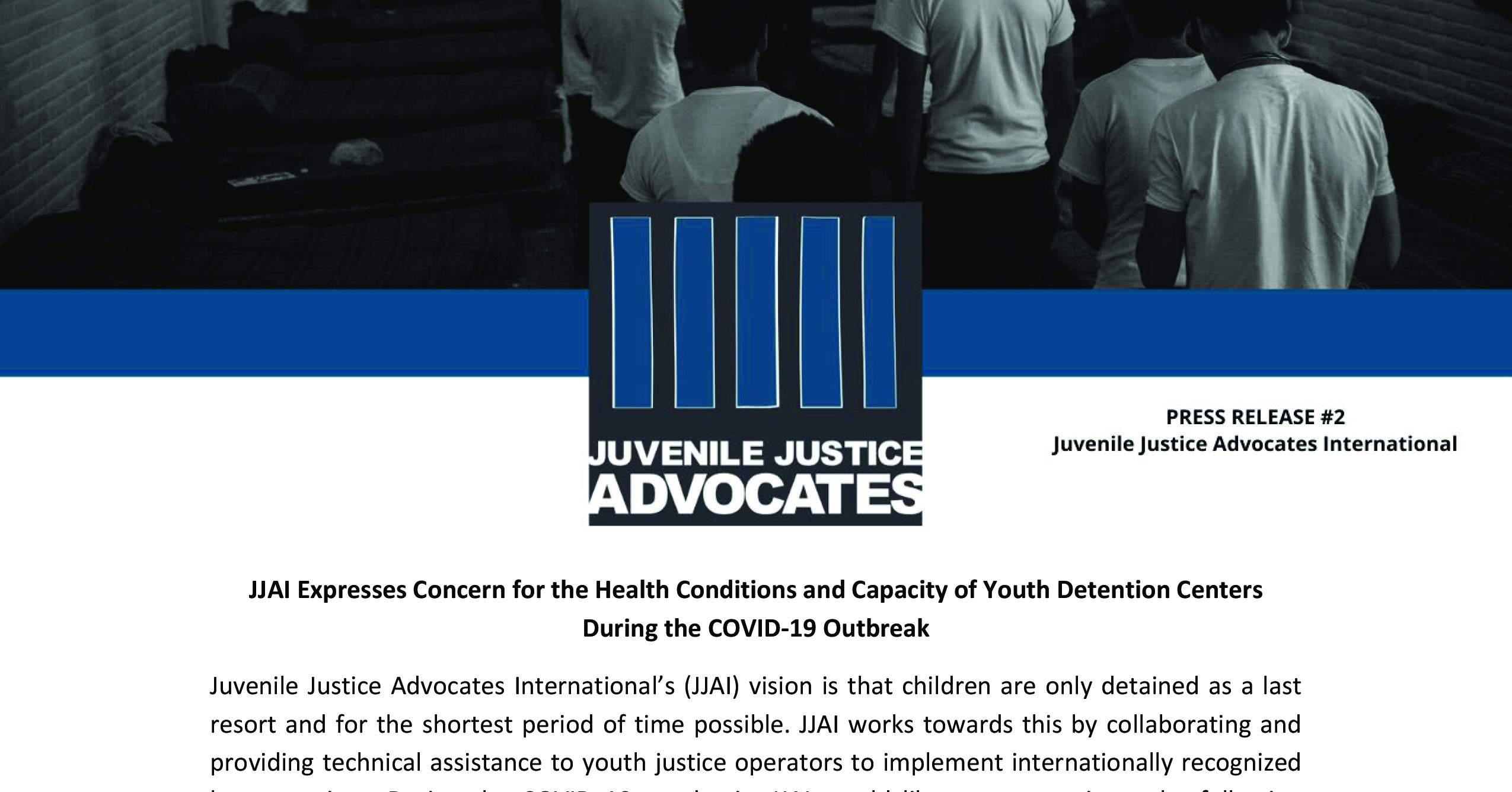*Specific communication for Mexico was released and is available in Spanish, click here for more info.
Juvenile Justice Advocates International’s (JJAI) vision is that children are only detained as a last resort and for the shortest period of time possible. JJAI works towards this by collaborating and providing technical assistance to youth justice operators to implement internationally recognized best practices. During the COVID 19 pandemic, JJAI would like to communicate the following concerns:
- The spread of COVID 19 inside of youth detention facilities.
- The continued respect for youth’s human rights.
- The risk to the mental health of detained youth.
Based on these concerns, JJAI asks youth justice systems and youth detention facilities to take the following actions:
- Implement precautionary measures for prisons as recommended by the World Health Organization:
- Elaborate a plan to keep the general population, visitors and staff informed.
- Raise awareness between visitors and staff about preventative measures.
- Implement recommended preventative measures – have soap and disinfectant gel available in entrances, cells/dormitories, and administrative areas, physical distancing, and responses to suspected COVID-19 cases.
-
- Increase the time of sports activities.
- Increase time allotted in libraries and leisure areas for board games.
- Increase time allotted for access to appropriate TV programs and movies.
- Allow books in dormitories.
- Allow notebooks, pens and/or pencils inside cells and other areas with supervision.
- Allow board games inside cells and other areas with supervision.
- Be diligent in detecting signs of depression and suicidal ideation.
- Maintain weekly contact with families to keep them informed and to listen to their comments, doubts, and concerns.
- Create a forum to communicate to the youth all preventative measures and all the changes in normal procedures in the detention center to keep them informed and listen to their comments, doubts, and concerns, always respecting their right to be heard. Make use of this space to explain to the youth what the current events are without unnecessarily alarming them, but to keep them fully aware of the situation.
Specific recommendations for Juvenile Courts, Prosecutors and Detention Administrators:
- Suspend the implementation of custodial measures.
- Provisional pretrial release for the following:
- Youth with any medical conditions.
- Pregnant youth.
- Youth who have spent 3 months or longer in pretrial detention.
- Youth charged with petty offenses, non-violent offenses or misdemeanors.
- Switch to house arrest/confinement if the case allows it.
- Provide post-trial conditional release to the following:
- Youth with any medical conditions.
- Pregnant Youth.
- Youth with under partial-deprivation of liberty sentences – such as evening or weekend lock-up.
- Youth with under 6 months of the served time of their custodial sentence.
- Postpone or modify sentences utilizing non-custodial precautionary measures.
We encourage all detention centers to reach out to us in case of requiring technical assistance to elaborate on these protocols of transparency. Likewise, we encourage all detention centers which collaborate directly with our staff to inform us of any material needs this time such as access to cell phones for family contact or board games and other recreational activities. Please contact us through: info@jjadvocates.org. You can also follow the most recent updates on our Twitter account: @jji_esp or Facebook account: facebook.com/jjimexico/ and facebook.com/juvenilejusticeadvocates/

